Dual-Purpose Chickens
This list of dual-purpose chickens will help you add a more diverse selection to your backyard coop. Having a mix of egg layers and double duty hens will keep your flock profitable and sustaining for your family.
The benefits of raising chickens that do more than lay eggs in your backyard coop.
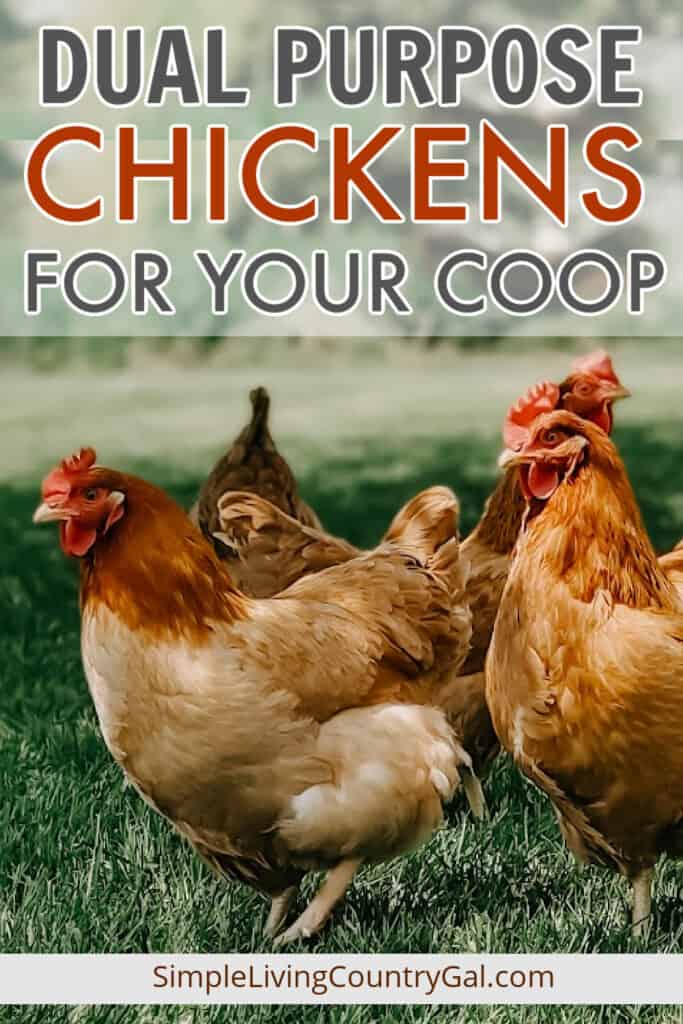
Backyard chickens are popping up in more backyards. You see them in the classic rural areas and now they are showing up in the suburbs. Most coops are full of egg laying breeds that are known for their ability to produce eggs all year long. New to the flock are dual-purpose breeds and more folks are adding them to their established coops. Giving eggs and meat, these chickens are a great addition to any backyard coop.
why Dual-Purpose Chickens?
Many chickens lay eggs for 3-5 years depending on the breed and the environment they live in. After their are done laying, they can live another 3-4 years meaning you will be feeding them for nothing in return. For hobbyists or people that consider their chickens to be pets this may be fine.
For homesteaders and farmers feeding livestock for no reason does not make economical sense. When you have dual purpose chickens, you can sell your hens for meat to offset feed bills or butcher them to use in your own home.
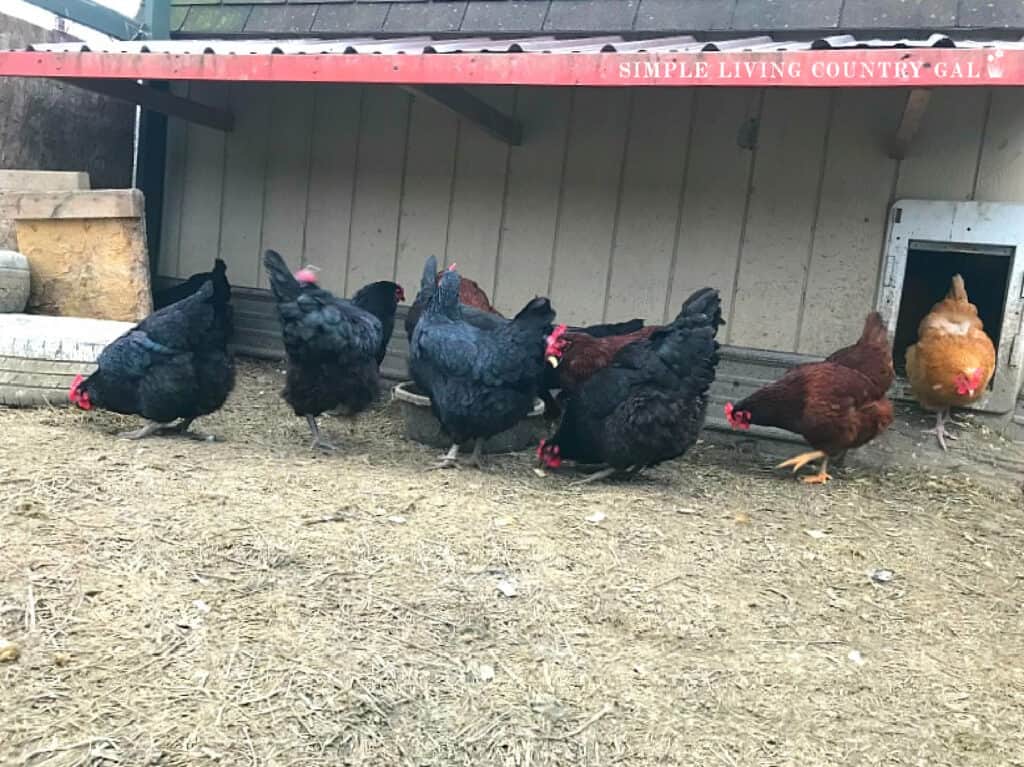
why we love dual-purpose chickens
Dual-purpose chickens are naturally hardy birds allowing them to handle the cold winters better. Since they have more meat and insulation they can get through the colder seasons while still laying and growing.
Not all chickens are great layers and may only give you eggs every few days. Knowing you can use your chickens for meat gives you a more financially secure plan.
Common Dual-Purpose breeds
Let’s look at the top dual purpose breeds of chicken so you can round out your flock with egg layers and meat options.
Rhode Island Red
Rhode Island Reds are a staple in many homesteads and are the most common hen to raise.
Characteristics:
- Dual-purpose breed with excellent meat and egg production
- Can start laying at 5 months old and continue for up to 5 years
- Hardy, friendly, and adaptable to different climates
Plymouth Rock
Plymouth Rocks are another popular dual-purpose breed known for their docile nature and reliable egg-laying.
Characteristics:
- Dual-purpose breed with a good balance of meat and egg production
- Large size makes them great for meat purposes
- Docile temperament making them easy to handle and work with
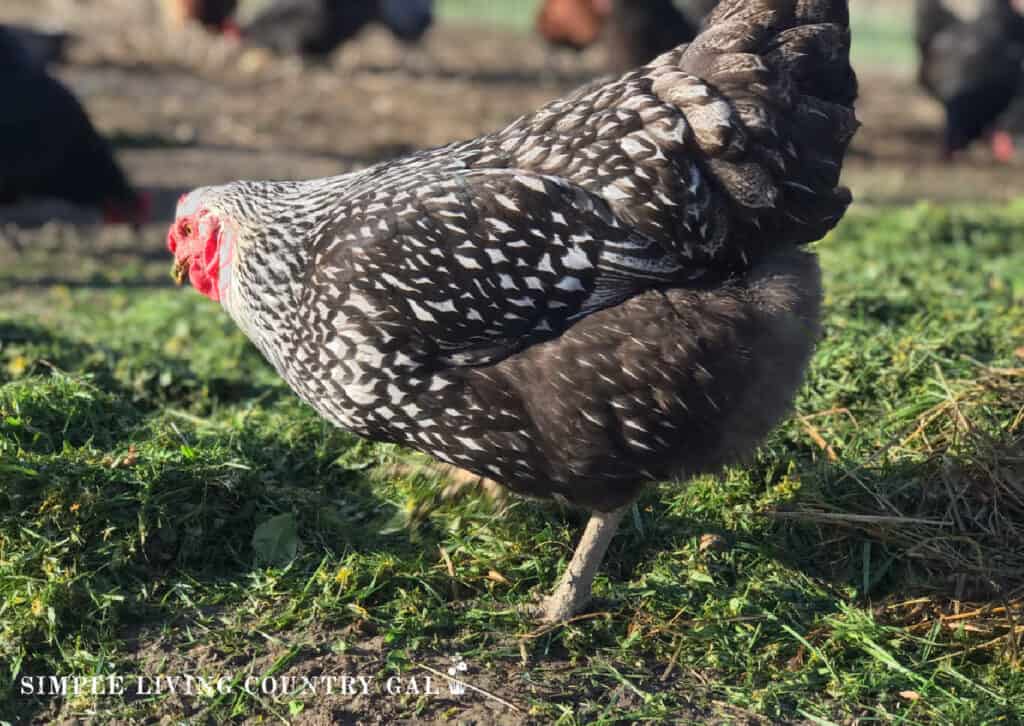
Sussex
Sussex chickens are a great choice for those looking for consistent egg-laying and substantial meat production.
Characteristics:
- Excellent dual-purpose breed with good meat and egg production
- Can lay up to 250 eggs per year
- Hardy and adaptable to different climates
Orpington
Orpington chickens are known for their large size and fluffy feathers, making them great for both egg-laying and meat purposes.
Characteristics:
- Dual-purpose breed with good meat and egg production
- Lays around 200 eggs per year
- Gentle and friendly temperament makes them great for families
Wyandotte
Wyandotte chickens are a popular choice for both backyard flocks and commercial farms due to their efficient egg-laying and decent meat production.
Characteristics:
- Dual-purpose breed with good meat and egg production
- Lays around 200 eggs per year
- Can tolerate cold weather well
New Hampshire Red
New Hampshire Reds are a great choice for those looking for a hardy and productive dual-purpose breed.
Characteristics:
- Excellent meat production with good growth rate and carcass quality
- Decent egg production, laying around 200 eggs per year
- Hardy and adaptable to different climates
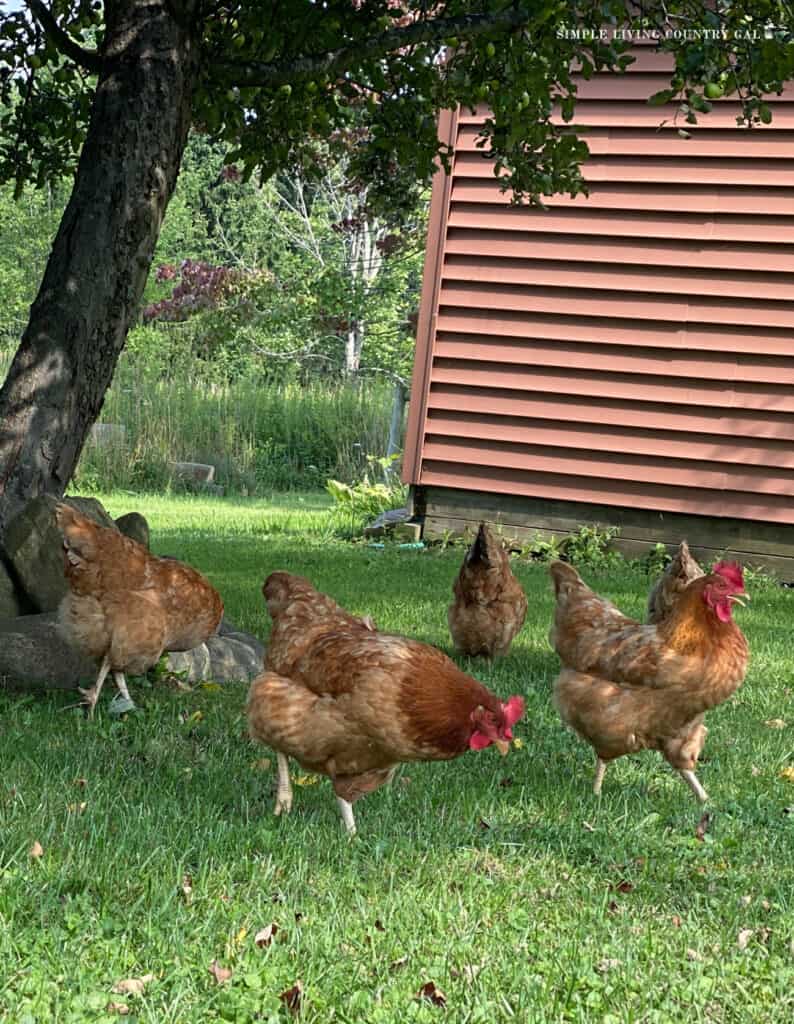
Each breed has its standout features, whether it’s the number of eggs laid per year, the meat quality, or their resilience against certain climates and diseases. When choosing a chicken, look for traits that complement your specific homesteading needs.
Chicken Coop Setup
Selecting the right chicken breed is only the first step. Having a coop that is a good size, has all the key components, and protects the entire flock from weather and predators is a must.
Chicken Swing Toys and Chicken Toys Xylophone, 2pcs Chicken Toys for Poultry Run Rooster Hens Chicks Pet Parrots Macaw Entertainment Stress Relief for Birds


Coop Size:
For optimal health and productivity, chickens need a minimum of 4 square feet per bird inside the coop. This allows them enough space to move around comfortably and prevents overcrowding, which can lead to stress and health issues. However, providing more space is always better if possible.
Key Components in a coop:
- Nesting boxes: A cozy area for hens to lay their eggs. One nesting box per 3-4 hens is recommended.
- Roosting bars: A perch for chickens to sleep on at night. Allow at least 8 inches of space per bird.
- Ventilation: Fresh air circulation is crucial for maintaining good air quality and preventing respiratory illnesses.
- Lighting: Chickens need natural or artificial light to lay eggs consistently.
- Feeder and waterer: These should be kept clean and filled regularly to ensure proper nutrition and hydration for your flock.
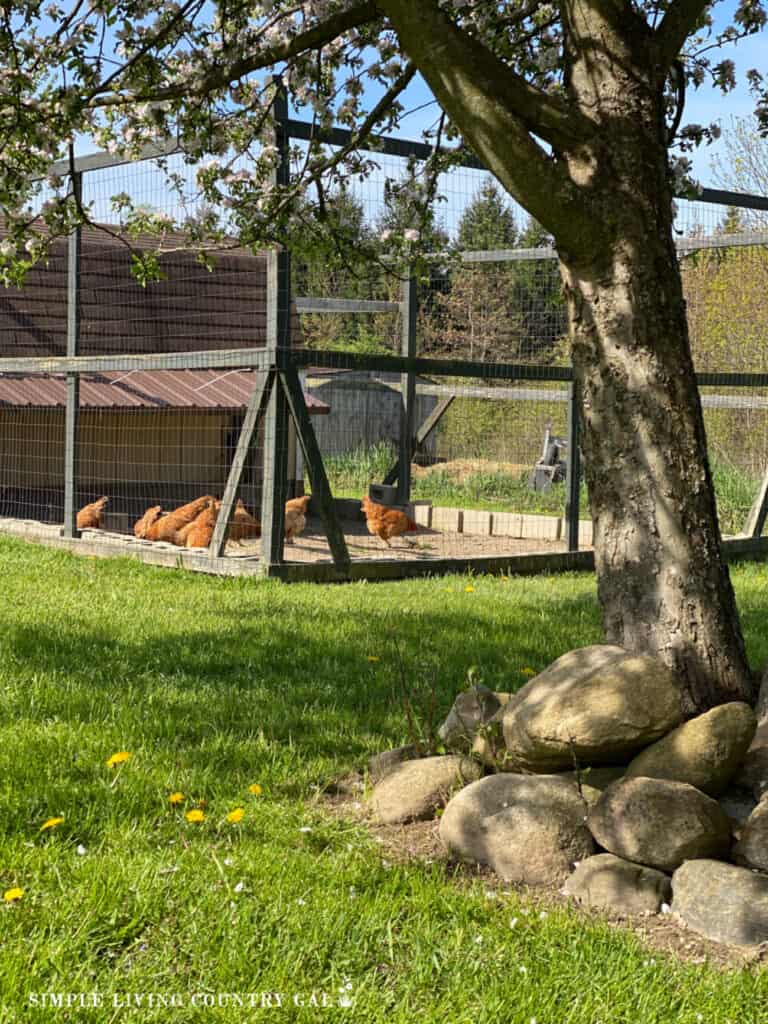
Nutritional Needs for Dual-purpose breeds
A balanced diet is key to maintaining the health and productivity of your flock. Chickens need a combination of grains, protein, vitamins, and minerals to stay healthy.
- Grains: These can include corn, wheat, oats, and barley. A commercial chicken feed usually contains a mix of these grains.
- Protein: Chickens need protein for egg production and feather growth. This can come from soybeans, peas, fish meal, or insects.
- Vitamins and minerals: These can be found in a variety of sources such as greens, fruits, and oyster shells. A diet lacking in these essential nutrients can lead to health issues for your chickens.
Things to Watch For
As with any animal, there are clues to watch for telling you there may be an issue that needs your attention.
- Disease and Illness: Like all animals, chickens are susceptible to a variety of diseases and illnesses. It’s important to keep an eye on your flock for any signs of illness and work with a vet if necessary.
- Parasites: Chickens can also be affected by parasites such as mites, lice, and worms. Regularly check your chickens for signs of infestation and take preventative measures to keep them healthy.
- Predators: It’s important to protect your chickens from potential predators such as foxes, raccoons, and hawks. Make sure your coop is secure, and consider adding deterrents such as fencing or an electric fence.
Dual-purpose chickens are a great way to set up a flock that is thriving, self-sufficient, hardy, and great producers. Keep this list of dual-purpose breeds close so you can refer to it each time you want to add more chickens to your backyard coop.




